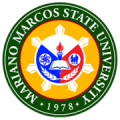 (41).png)
MMSU techno demo farm to boost tomato industry
By Kimberly S. Miguel, Correspondent
Farmers in Ilocos Norte can now expect improved tomato production with the launch of the technology demonstration farm for off-season tomato varieties at the Mariano Marcos State University (MMSU) Experimental Farm on October 7.
The 2,000-square meter tomato demonstration farm showcases MMSU-developed hybrid tomato varieties and biopesticides which continue to bear fruits even during wet season. Motivating local farmers to adopt these technologies, the university aims to help boost the tomato industry in the province.
More than 100 interested tomato growers, farm leaders, and agricultural extension workers from the cities of Batac and Laoag, and towns of Bacarra, Badoc, Banna, Burgos, Currimao, Paoay, San Nicolas, Sarrat, and Solsona visited the tomato demo farm on its launch. They also attended a forum on improved production practices and technologies held at the MMSU Center for Flexible Learning.
“Through this techno demo farm, we hope to bring our technologies and make a significant impact to the communities we serve,” expressed university extension director Marilou Lucas.
Dr. Lucas shared that the MMSU’s Hybrid 1 (NSIC Tm10) and Hybrid 3 (NSIC Tm11) are the main tomato varieties planted in the demo farm. The former is a promising tomato variety that matures at 62 days with an average vine length of 137 centimeters at maturity. It can produce an average yield of 33.95 tons per hectare (t/ha) in dry season (DS) and 27.72 t/ha in wet season (WS). Meanwhile, the latter matures in 62 days with an average vine length of 148 cm at maturity. This variety can produce an average fruit yield of 45.8 t/ha in DS and 28.33 t/ha in WS.
Other off-season tomato varieties in the demonstration farm are Tm 1, Tm 2, Tm 3, Tm 5.1, and Tm 7.2.
Mr. Jilves Jimenez, project leader of the MMSU tomato techno demo farm, said the area also demonstrates how botanical pesticides like the Bio-Insecticide 3 control tomato fruit worms. Bio-In 3 was made from extracts of tantandok (C. viscose), katsumba (A. mexicana), maragatas (E. hirta), and busbusilak (T. pandacaqui). This was developed by MMSU researchers Ms. Leticia Lutap, Ms. Alecsis Villarin, and Dr. Aida Solsoloy.
Jimenez added that trellising was also applied to provide protection for the fruits against rotting and damage by rats during the wet season. Trellising is a gardening technique that keeps plants off the ground to improve production and increase usable space.
MMSU President Shirley C. Agrupis said the opening of the techno demo farm for off-season tomatoes is one of the university's ways to push village-scale technology commercialization in the province.
President Agrupis shared that the university is maximizing tomatoes by producing ToMango Juice, ToMango Ketchup, and Pinakbet Paste through technology incubation and management being done by the MMSU Food Processing and Innovation Center.
Region I is the top producer of tomatoes in the country. In the quarterly report of the Philippine State major vegetables for April-June, the Ilocos Region had shared 34.1 % of the country’s total tomato output. (HLY/JVBT/DPTJ, StratCom)
Gallery
 (41).png)
Dear Valued Client,
We will be introducing our newly upgraded website on October 31, 2024 – offering faster access, improved navigation, and enriched content for students, faculty, partners, and stakeholders. Experience how we cultivate minds and transform futures at MMSU.

 CAFSD
CAFSD CASAT
CASAT CAS
CAS CBEA
CBEA CCIS
CCIS COE
COE CHS
CHS CIT
CIT CTE
CTE COM
COM CVM
CVM Graduate School
Graduate School




